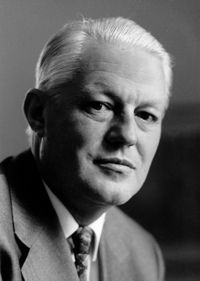Stoltenberg Institute - General Information
- Yogi Reppmann
- Mar 16, 2016
- 3 min read
Stoltenberg Institute for German-American Forty-eighter Studies Friends of the Forty-eighters — the forgotten ideas and values in America’s past and present

The Stoltenberg Institute of Forty-eighter Studies, a forum for German-American discourse, focuses on Germans who came to the U.S. after the 1848 European democratic revolutions, according to its Executive Director, Dr. Joachim Reppmann. The new institute is named in honor of Dr. Gerhard Stoltenberg (1929-2001), who served as Minister-President of the state of Schleswig-Holstein. The institute’s first volume will contain the papers presented at a German-American History Conference (“The Legacy of 1848”) held at Wartburg College in late October, 2013. The conference was organized by Reppmann and Dr. Daniel Walther, Wartburg College’s Gerald Kleinfeld Distinguished Professor in German History. An advisory board for the new institute has also been formed. Chaired by Dr. Don Heinrich Tolzmann, its members include Henry Kissinger, Eric Braeden, Walter Pfaeffle, and others prominent in the fields of German-American Studies and U.S.-German relations. The Stoltenberg Institute’s goal is to “preserve the history of European democratic republican Forty-eighter immigrants by actively collecting, preserving, interpreting, and presenting documents, artifacts and scholarly research and by promoting public involvement in and appreciation of this heritage through educational programming and community outreach.” The Stoltenberg Institute aims to be “a transatlantic institute, heritage center espousing the Forty-eighters’ conviction that we all embody moral values that should be publicly expressed, thereby making a meaningful contribution towards solving the myriad of challenges confronting the Western world.”
The “Forty-eighters” were a relatively small number of individuals who emigrated from Europe in the late 1840s and early 1850s after fighting unsuccessfully with both pen and sword for liberty, democracy, and national unity. Many German Forty-eighters immigrated to the United States, with a large number from the present-day state of Schleswig-Holstein choosing Davenport in Scott County, Iowa, as their adopted home. After settling in America, unique and talented individuals such as Theodor Olshausen, Hans Reimer Claussen, and Christian Müller provided an intellectual transfusion affecting not only their fellow German immigrants, but also the political and social history of the United States during one of its most critical periods.
Many Forty-eighters left lasting marks in the fields of politics, education, business, journalism, the arts, and the military. Carl Schurz, perhaps the most well-known German Forty-eighter who settled in America, was an ambassador to Spain for President Lincoln, a general during the Civil War, a United States senator, and the Secretary of the Interior under President Rutherford B. Hayes.
Carl Schurz’s legacy has become more significant and timely. With the steady increase of immigration to the United States, it’s become more critical to establish the proper framework for the absorption of the newcomers. Schurz’s solution to this problem — assimilation with the retention of each newcomer’s ethnic heritage — although no longer put in these terms, remains valid. The fusion of ethnic identities and American values is extremely important, and the example set by Carl Schurz might well be upheld today as a model for all immigrants.
The moving 29-minute video, ‘Forty-eighters & Friends’, highlights the Forty-eighters’ conviction that we all embody moral values that should be publicly expressed, thereby making a meaningful contribution towards solving the myriad of challenges confronting the Western world.

The Stoltenberg Institute for German-American Forty-eighter Studies
Dr. Joachim Reppmann Executive Director 103 North Orchard Street Northfield, Minnesota MN 55057, USA yogireppmann@gmail.com www.Moin-Moin.us





Comments